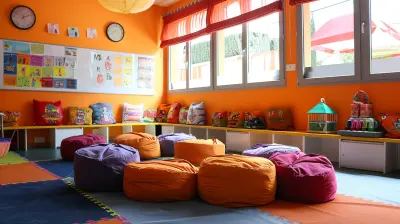How Maps Have Influenced Human Understanding of the World
12 May 2025
Maps have been shaping our perception of the world for centuries. From ancient hand-drawn sketches to modern digital GPS tools, they have influenced how we see, navigate, and even understand our place in the grand scheme of things. Have you ever stopped to think about how different our lives would be without them?
Maps aren’t just about finding the shortest route from point A to point B—they are storytellers. They tell tales of exploration, discovery, and human ambition. But beyond that, they shape our worldview, influence politics, and even define how we interact with our surroundings. Let’s dive into how maps have played such a crucial role in shaping human understanding of the world. 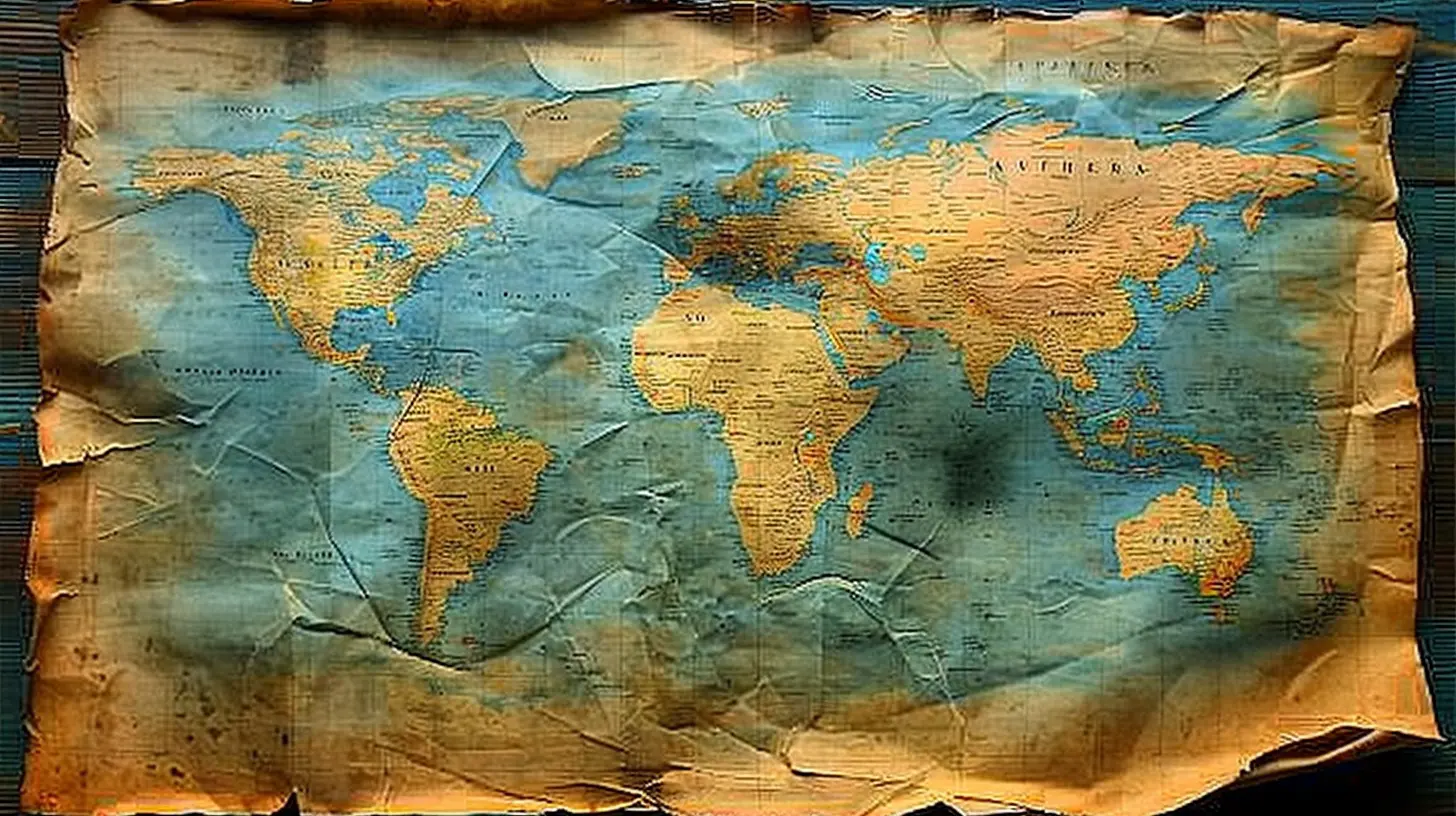
The Early Days: Mapping the Unknown
Long before Google Maps became a pocket essential, our ancestors relied on primitive maps to make sense of their surroundings. Ancient civilizations like the Babylonians, Greeks, and Egyptians created maps to document territories, trade routes, and even the stars.One of the earliest known maps, the Babylonian Map of the World, dates back to around 600 BCE. This clay tablet, simplistic as it was, reflected what people back then believed about their world—small, centered, and surrounded by dangerous unknowns. Sound familiar? Even today, we tend to see the world through the cultural lens we’re most familiar with.
The Greeks took mapping a step further. Eratosthenes, a Greek scholar, was among the first to calculate the Earth's circumference using only shadows and some clever math. His work laid the foundation for cartography as a scientific discipline. 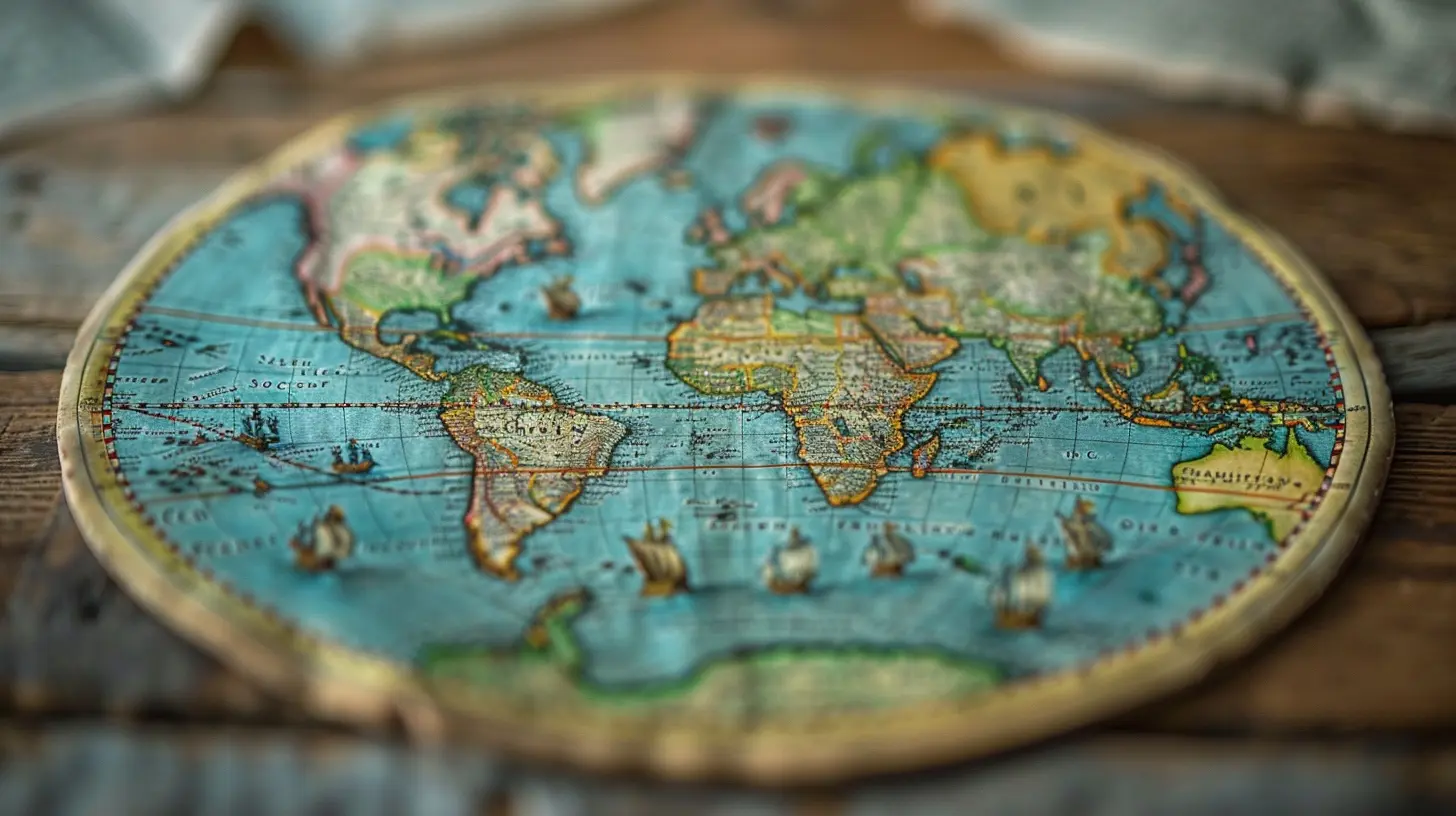
Maps as Tools for Exploration
Fast forward a few centuries, and maps became essential instruments of exploration. Think about the Age of Exploration—when adventurers like Christopher Columbus and Ferdinand Magellan set sail in search of new lands. Without maps (even inaccurate ones), these voyages wouldn't have been possible.Each new discovery was added to maps, altering the way people saw the world. Imagine seeing new continents being drawn onto globes and maps for the first time. It must have been mind-blowing! But maps weren’t always accurate—sometimes due to lack of knowledge, sometimes deliberately tweaked for political or strategic reasons.
One famous example? The Ptolemaic Map. Created by Claudius Ptolemy in the 2nd century, this map influenced explorers for over a thousand years, even though it contained major inaccuracies. Yet, without it, the age of global exploration might have looked very different. 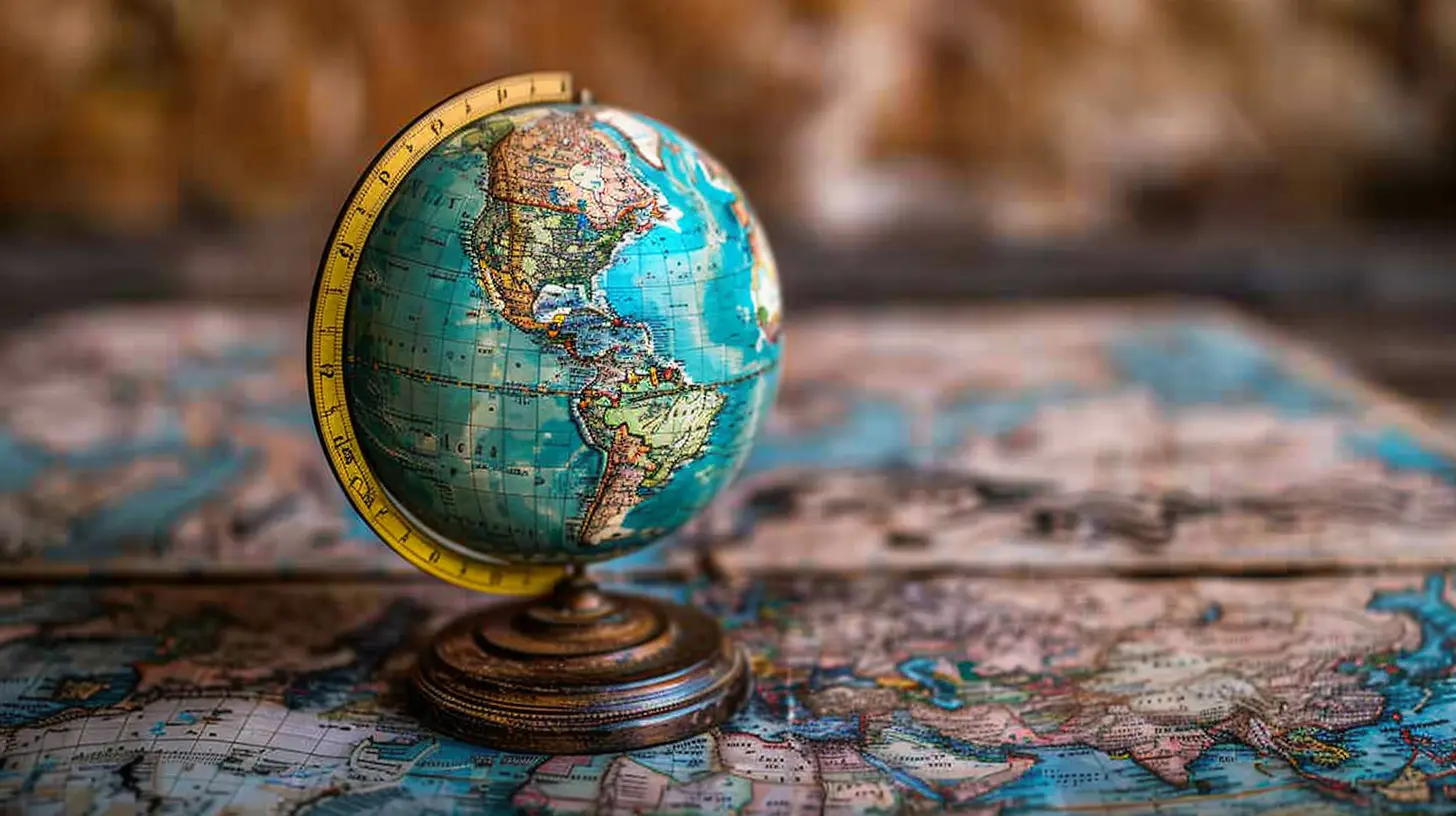
The Power of Perspective: How Maps Shape Our Worldview
Have you ever noticed how certain world maps make some countries look much larger than they actually are? That’s no accident.Take the Mercator Projection, one of the most commonly used map formats. Designed in 1569 for navigation, it dramatically enlarges places like Europe and North America while shrinking Africa and South America. The result? A distorted perception of global power and importance.
Why does this matter? Well, maps influence how we see the world politically, socially, and even economically. A map that distorts the size of countries can subtly reinforce power dynamics—whether intentional or not.
That’s why alternative projections, like the Gall-Peters Projection, were introduced. This map keeps landmasses proportional, offering a more accurate (if unfamiliar) view of the world. 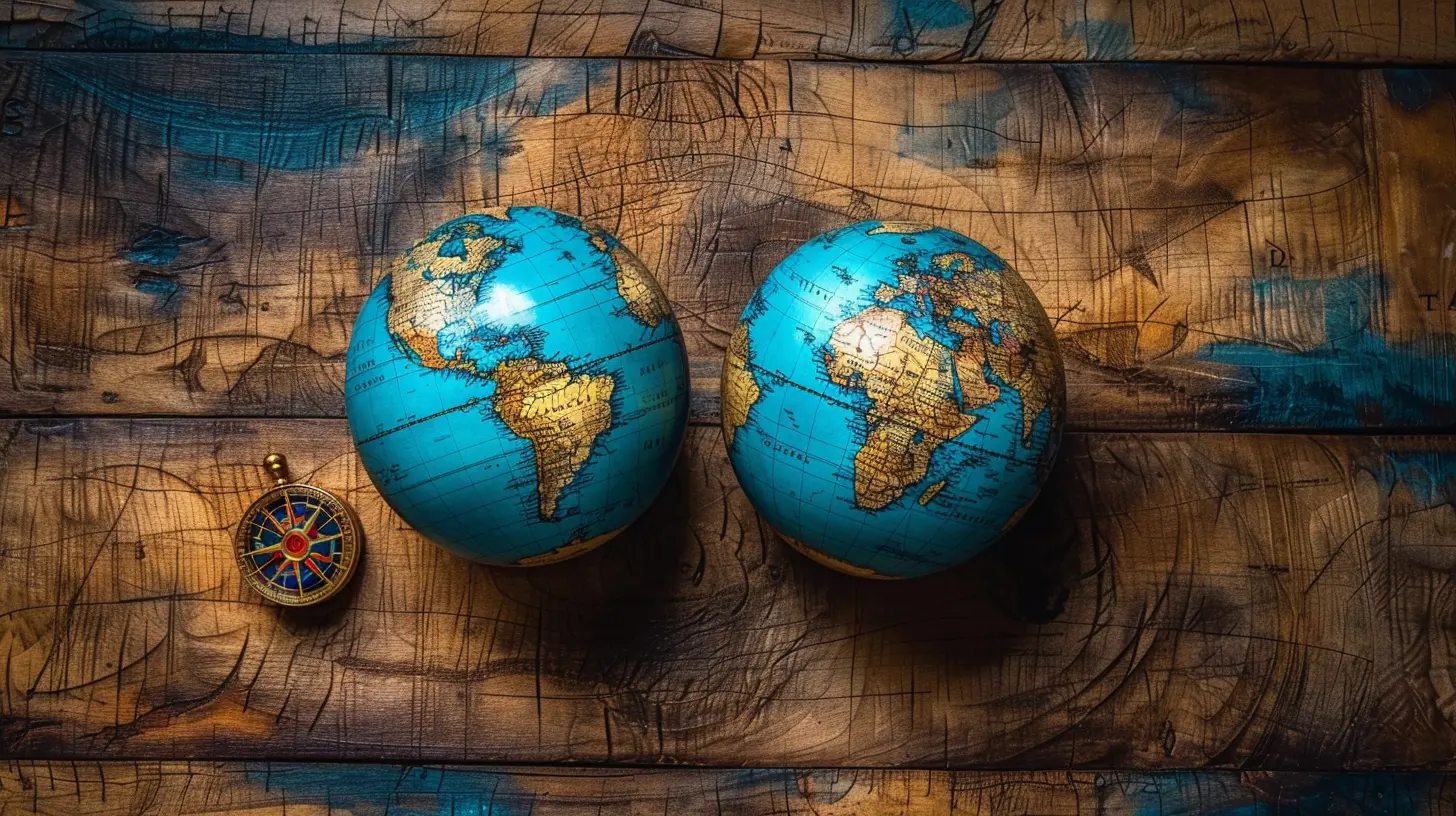
Maps & Human Connection: The Psychology of Navigation
Beyond geopolitics, maps also affect how we think and interact with our environment on a personal level. Have you ever noticed how a map can make a place feel smaller and more manageable?Before smartphones, getting lost was a common (and sometimes frustrating) experience. Nowadays, all it takes is a few taps on Google Maps, and we instantly feel in control. But there’s a downside—our reliance on digital maps has made us less skilled at spatial navigation.
Studies show that people who frequently use GPS for navigation exhibit weaker hippocampal activity, the part of the brain responsible for memory and spatial awareness. In contrast, those who rely on mental maps (like taxi drivers before GPS) develop sharper navigation skills.
So, while maps have empowered us, they have also made us more dependent on technology. Funny how that works, right?
Digital Maps: The Game Changer
In today’s world, maps are no longer just paper sketches—they are dynamic, interactive, and incredibly detailed. Think about the power of Google Earth, GPS, and real-time traffic updates. They don’t just show us where we are; they predict where we need to go, suggest alternative routes, and even learn from our behaviors.But digital mapping comes with its challenges. Privacy concerns, data collection, and potential overreliance on technology are real issues. When a company controls maps, it controls how we navigate the world. Ever wondered why some businesses seem easier to find on Google Maps than others? Algorithms and advertising play a role in shaping what we see.
Despite these concerns, there’s no denying that digital maps have revolutionized how we experience the world. Whether it’s planning a vacation or tracking a food delivery, maps shape our daily lives more than we realize.
The Future of Maps: What’s Next?
With AI and machine learning advancing rapidly, the future of maps is exciting. Imagine maps that adjust in real-time, guiding self-driving cars, predicting natural disasters, and helping urban planners design smarter cities.Augmented Reality (AR) is another game-changer. Soon, we might not need physical or digital maps at all—just smart glasses that overlay navigation instructions onto the real world. Sounds like something out of a sci-fi movie, right? But it’s closer than you think.
As technology evolves, so does our understanding of the world. But let’s not forget the original purpose of maps—to help us find our way, both physically and mentally.
Final Thoughts
Maps are more than just tools for navigation—they are windows into human history, perspective, and ambition. They have influenced everything from exploration to politics and even how we see ourselves in the grand scheme of things.So, the next time you pull up Google Maps for directions, take a moment to appreciate the centuries of evolution that brought us here. Who knows? The way we navigate the world might change again sooner than we think.
all images in this post were generated using AI tools
Category:
Social StudiesAuthor:

Eva Barker
Discussion
rate this article
6 comments
Josie Lewis
Maps truly broaden our horizons and spark curiosity!
May 19, 2025 at 2:45 AM

Eva Barker
Thank you! Maps indeed ignite our curiosity and expand our perspective on the world.
Zaren Sanders
Maps shape perspective profoundly.
May 16, 2025 at 7:46 PM

Eva Barker
Absolutely! Maps do more than represent geography; they influence our perceptions, guiding how we see and interact with the world around us.
Karson Hahn
Maps serve as both a reflection and a lens of our understanding, shaping perceptions of distance, culture, and power. They not only guide journeys but also reveal the intricate narratives of human connection and division across the globe.
May 16, 2025 at 3:57 AM

Eva Barker
Thank you for your insightful comment! Maps truly do capture the complexities of our world, influencing how we navigate both physically and culturally.
Easton Blevins
Maps shape our perceptions and connections, guiding us to understand and appreciate our world.
May 15, 2025 at 7:28 PM

Eva Barker
Thank you for your insightful comment! Indeed, maps are powerful tools that not only depict geography but also shape our perspectives and relationships with the world around us.
Vaughn Huffman
Maps are more than just tools; they are gateways to understanding our world. They empower us to explore, dream, and connect with diverse cultures and landscapes. Embrace the journey of discovery that maps offer, and let them inspire you to broaden your horizons and ignite your curiosity!
May 13, 2025 at 7:02 PM

Eva Barker
Absolutely! Maps not only guide us geographically but also enrich our understanding of cultures and histories, inspiring curiosity and exploration. Thank you for highlighting their transformative power!
Rex McClure
Great article! It effectively highlights how maps shape our perceptions and knowledge of geography. Incorporating examples of specific maps and their historical impacts could further enrich the discussion. Keep up the insightful work!
May 13, 2025 at 3:25 AM

Eva Barker
Thank you for your feedback! I'm glad you found the article insightful. I appreciate your suggestion and will consider including specific map examples in future discussions.


